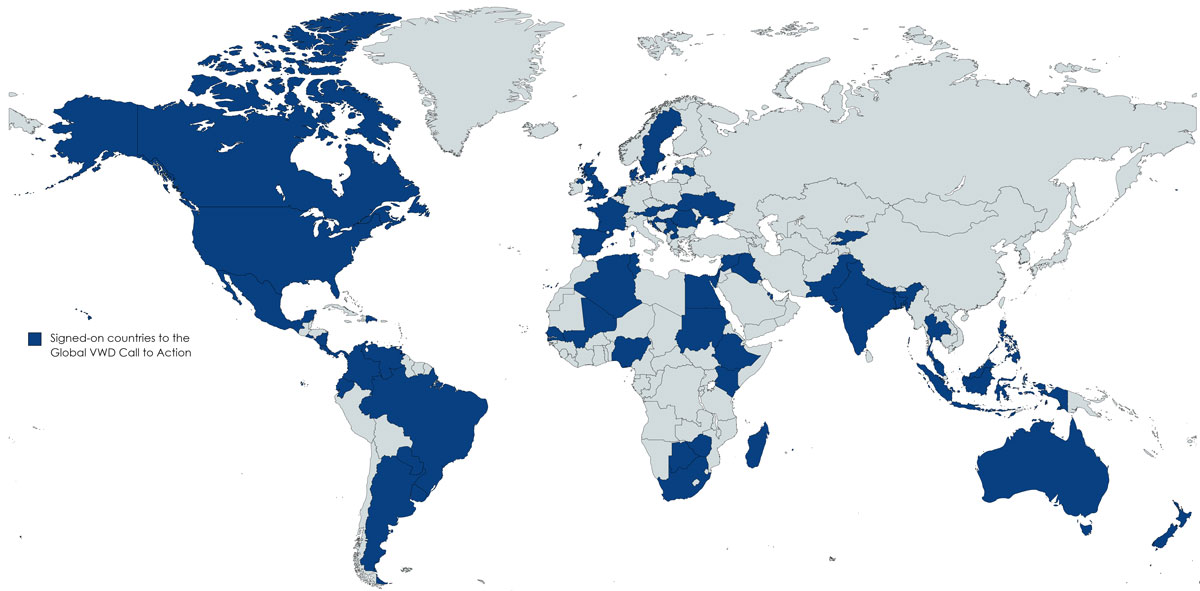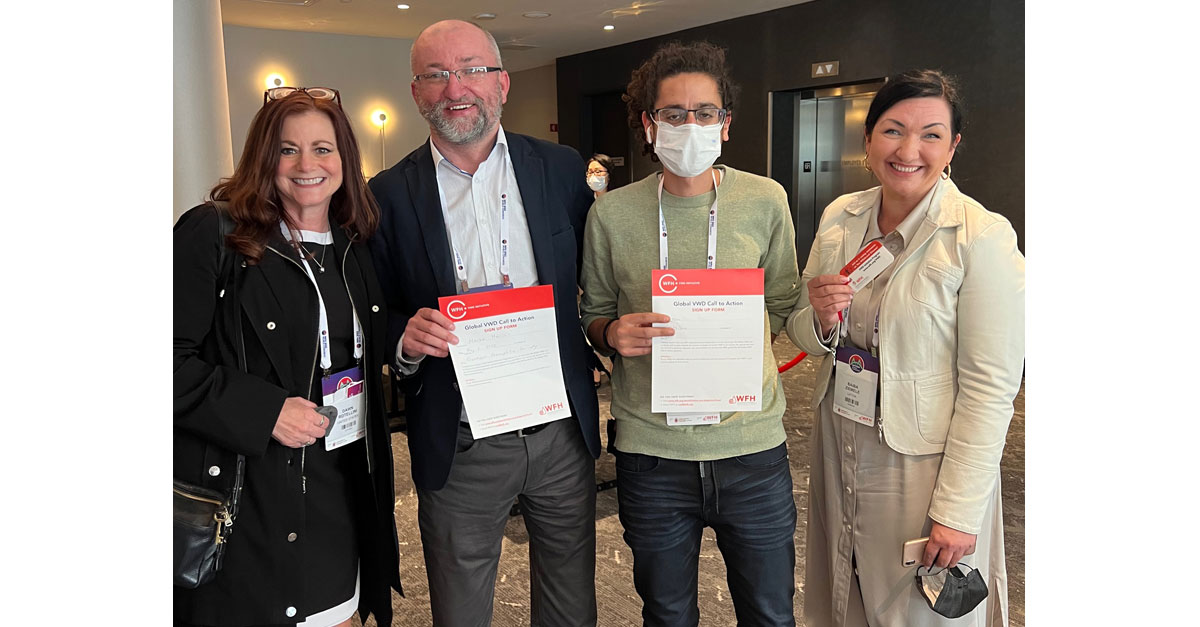The WFH Global VWD Call to Action was designed to identify key priorities that can help NMOs promote adequate care and treatment for people with VWD in their countries. The endeavour was led by the WFH VWD Global Group and included input from the European Haemophilia Consortium (EHC). The group actively canvassed different stakeholders over a period of five years—and we are proud to say that 65 NMOs have now signed on. Here are just a few of the many inspiring accomplishments those 65 NMOs have delivered since 2017:
- In Malaysia… webinars designed to empower women and girls with bleeding disorders (WGBDs) were delivered to dozens of participants
- In Syria… a campaign to raise the awareness of VWD reached nearly 700 participants and helped to identify 100 of those women and girls as possibly having VWD
- In the U.S.A… an outreach and diagnosis campaign called “Better You Know” reached nearly 900 women and girls, of which 77% were at risk of having a bleeding disorder
- In Canada… a weeklong social media awareness campaign was seen over 17,000 times and an awareness advertorial on women and bleeding disorders was published in the Global Heroes magazine
- In Serbia… the ISTH-SSC Bleeding Assessment Tool was translated and made available to gynecologists
The combined results of these NMO activities and the work of the VWD Global Group have been inspiring. In 2017, 82,059 people were diagnosed with VWD. In the latest Annual Global Survey (AGS), that number has increased to 98,293—an improvement of 19.8%. During that same period, data collection for VWD as part of the AGS and the World Bleeding Disorders Registry (WBDR) has also increased. As well, the ASH ISTH NHF WFH Guidelines on the Diagnosis of VWD and the ASH ISTH NHF WFH Guidelines on the Management of VWD were published.

With 2022 coming to an end, the WFH would like to expresses its gratitude and appreciation to the members of the Global VWD Group and the other stakeholders who participated in the five-year Global VWD Call to Action campaign. The WFH VWD Initiative will continue to focus on improving the lives of people with VWD around the world, focusing on outreach and identification, evidence-based advocacy, education, and humanitarian aid.
To find out more about the VWD Initiative, click here.












